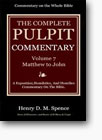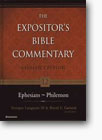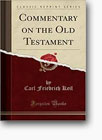- Introduction - To the American Reader
- Preface to the Fifth Edition
- Author's Preface
- CHAPTER 1. Future Punishment Is Eternal.
- CHAPTER 2. Eternal Death
- CHAPTER 3. Testimony Of The Old Testament.
- CHAPTER 4. Testimony Of The New Testament.
- CHAPTER 5. The Greek Of The New Testament.
- CHAPTER 6. The Primary Sense Of Terms Vindicated.
- CHAPTER 7. The Illustrations Of Scripture.
- CHAPTER 8. The Resurrection Of The Wicked.
- CHAPTER 9. The Divine Justice.
- CHAPTER 10. The Extinction Of Evil.
- CHAPTER 11. Examination Of Particular Texts.
- CHAPTER 12. Distinctions In Future Punishment.
- CHAPTER 13. Theories Of Punishment And Christian Missions.
- CHAPTER 14. Some Objections Answered.
- CHAPTER 15. The Apostolic Fathers. Clement Of Rome.
- CHAPTER 16. Justin Martyr.
- CHAPTER 17. Irenaeus, Martyr And Bishop Of Lyons.
- CHAPTER 18. Rise Of The Theory Of Eternal Life In Hell.
- CHAPTER 19. Tertullian.
- CHAPTER 20. Rise Of The Theory Of Universal Restoration Origen.
- CHAPTER 21. Conclusion.
The Duration And Nature Of Future Punishment
By HENRY CONSTABLE, A.M.
Prebendary of Cork
Fifth Edition - 1875
CHAPTER XXI
Conclusion
AND now we bring our work to its close. Its argument has led us to the most glorious hope and expectation which a being loving God can possibly entertain—the termination of moral evil. As it is a part of our Father's revelation that evil had an origin, so we rejoice to find it another part of that revelation that it will have an end. It is not from eternity, and it will not be to eternity. The condemned heresy of Manichaeism is not the doctrine of the Bible. Evil is a thing of time, and is not an essential part of the constitution of God's universe. The ages to come will roll on ignorant of evil, as were those former ages before the archangel fell. Evil will be blotted out. All God's attributes, His mercy, His holiness, His justice, His power, are pledged to extirpate it. To do so is a necessity of that nature of His which has its own binding eternal laws within itself. Hell is not the eternal abode of evil, concentrated in intensity, deepening and darkening throughout eternity, ever mingling its deep wails and its loud blasphemies with the hosannahs of earth and heaven. It is not the everlasting exhibition of a scene with whose moral horrors all the sensuality, and devilry, and hate, and despair, that have been exhibited in earth's foulest dens, could not compare. The phrenzies of Bedlam, were earth one Bedlam: the despair of suicide, were each one of earth's sons and daughters to resolve on rushing from a hated life: the hatred of the heart, were each heart to hate as Cain when he stood by Abel in the old field of murder: all these could not exhibit even a feeble resemblance to that which hell would present, if Augustine's view were true. Thank God it is not true. We have shaken off a hideous nightmare. We have renounced Satan's lie of the immortality of sinners. The hell which God has prepared is not for Augustine's purpose. He will, indeed, gather into it all things which offend—all the foul rakings of hate, and pride, and falsehood, and selfishness, and lust. But it is with the ominious purpose of Jehu, when he said, "Gather all the prophets of Baal, and all his priests; let none be wanting: and the house of Baal was full from one end to another." So will hell enlarge her borders; and the evil of the universe shall descend into it, and fill its wide domain, to be extirpated and blotted out for ever.
2. Such is the hell of Scripture, the very counterpart to that fearful scene which Augustine has depicted. The very thought of it is too horrible to think. We reject it as a black lie, a foul slander on the character of our God. However ancient this hoary lie, it is no part of the faith once delivered to the saints. We renounce it as a fable; a monstrosity worthy of the Koran, where it takes its fitting place; unworthy of the Gospel, where it finds no place. We leave it to the disciple of Mohammed, lying on his couch of sensuality, to look down with cruel delight upon a scene of unutterable and endless misery. 1 This is not the consummation which the disciples of Christ, or the worshippers of the Father of mercies, are called on to rejoice in. They could not look on it and rejoice. They could not regard pain as endless without feeling that unalloyed joy could never be their own.2 They will contemplate the destruction when it comes with satisfaction because in it they see evil and misery for ever banished from God's world, and God reigning supreme in the affection and loyalty of all that breathe.
3. From all this stand-point we view the final scene of retribution. There is heaven, and there is hell. The redeemed enjoy the one: the lost are subjects of the other. The book of Revelation describes the latter: "Death and Hades were cast into the lake of fire. This is the second death."3 All that has been and continued to be evil: the fallen angels who now move in earth and air; the spirits who are kept in chains of darkness; the multitudes whom the last day will find impenitent and unholy; have all been consigned to one common scene of punishment. According to their deserving is their suffering. The time for each one's suffering, over, he is wrapped in the slumber of eternal death. Gradually life dies out in that fearful prison until unbroken silence reigns throughout it. They who would not find life have found death. But the scene remains for ever: As Sodom and Gomorrah have exhibited to every succeeding generation of men the Divine vengeance upon full-blown iniquity, so will the charred and burnt-out furnace of hell afford its eternal lesson to the intelligences of the future. As angels wing their way from world to world, as the redeemed touch with fresh delight their harps of gold, as new orders of life are called into being, so the nature and the end of evil are always remembered in that scene where so many of the inhabitants of heaven and earth have bid an eternal farewell to that life of God which is so full of joy. That lesson of awe is read and pondered on by all. But it will be a lesson read without the shudder of anguish. The dead have drunk the waters of Lethe, "the silent stream," and forgotten long ago their misery. There is no eternal antagonism of good and evil, no eternal jarring of the notes of praise and wailing. Evil has died out, and with it sorrow: throughout God's world of life, all is joy, and peace, and love.
END.
Add Comment
Footnotes
1. * Koran, c. lxxxiii.
2. † Ps. 59:10; Victory of Divine Goodness. T. R. BIRKS, 179,
3. ‡ Rev. 12:14.











Comments